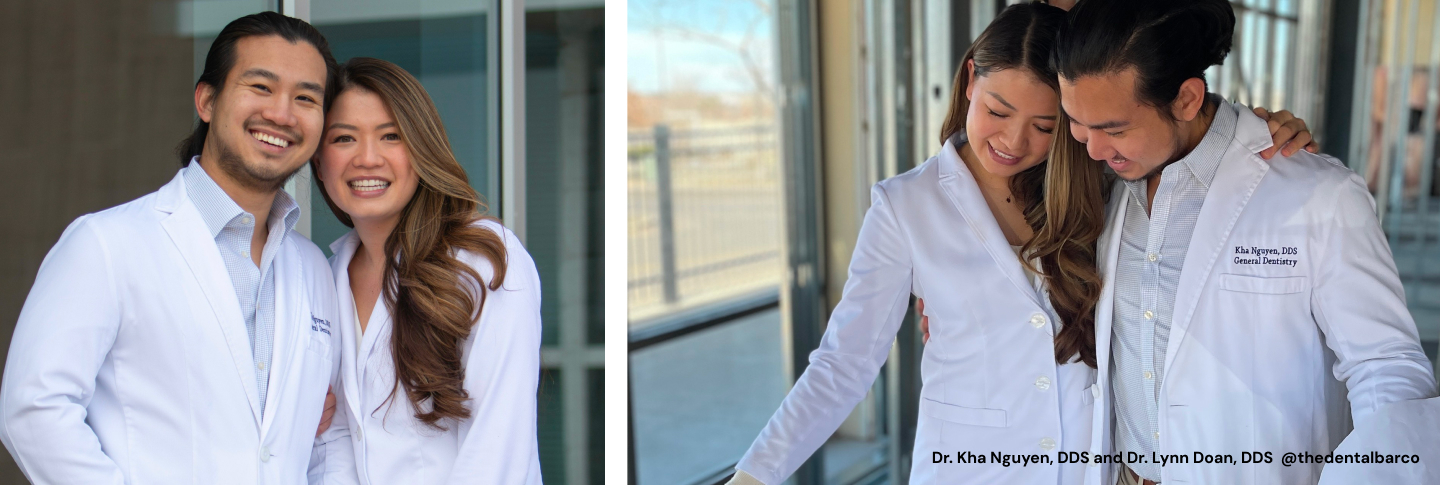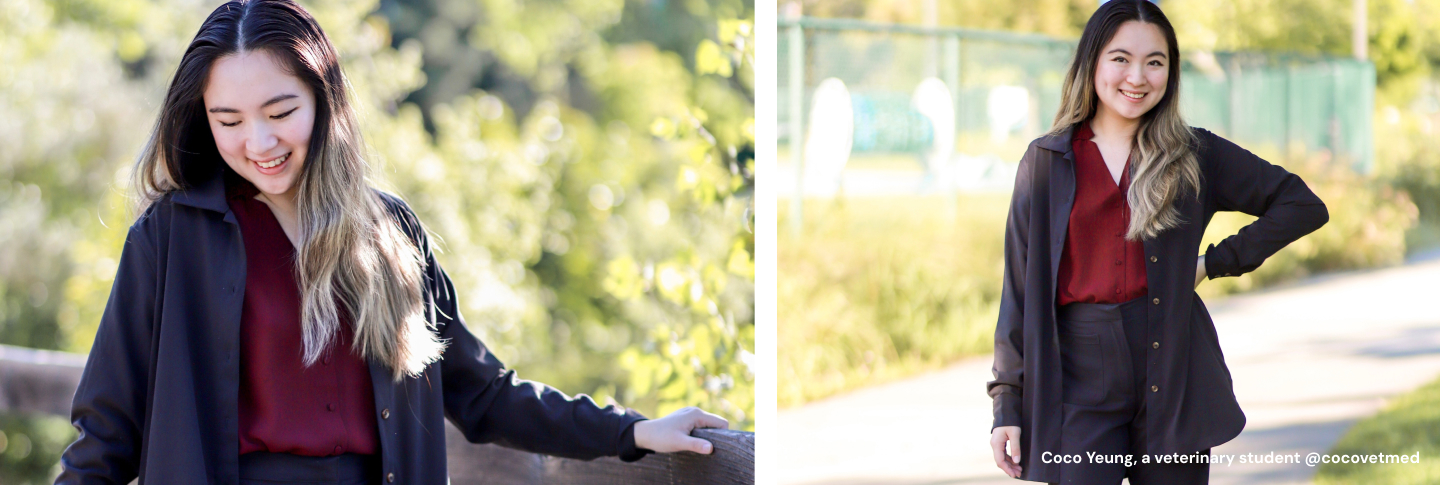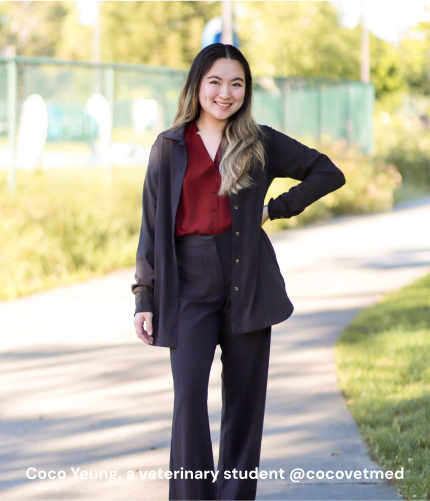Celebrating Diversity in Healthcare: AAPI Clinicians Discuss Mental Health
During AAPI Heritage Month, we're proud to partner with AAPI healthcare professionals who are not only leaders in their fields but also advocates for mental health awareness. These dedicated clinicians share invaluable insights into the unique mental health challenges faced within their communities, enhancing our understanding and approach to patient care.
Recognizing AAPI Impact in Healthcare
In celebrating AAPI Heritage Month, it's important to reflect on the unique experiences and challenges faced by Asian American and Pacific Islander clinicians in the healthcare sector. Brianna Campos, DNP, CRNA, also known as @brimcnamoo, expresses her pride in her Filipino heritage and the profound influence of her immigrant mother who became a nurse against all odds. "AAPI Heritage Month is special to me because I proudly represent my Filipino roots," Campos states. “My Filipino mother immigrated to the United States at age 22 with barely any resources. She eventually became a nurse and is my biggest inspiration of strength, perseverance, and determination. The many accomplishments of Asian Americans and Pacific Islanders continue to drive me to be the best nurse anesthetist I can be”.
Dr. Michelle Fong, DDS (@wanderlustingdds), highlights the importance of cultural and linguistic empathy in healthcare. "Often times there is a language and cultural barrier for Asian patients, so we need more empathetic Asian healthcare workers to support our communities," she notes. Fong is dedicated to inspiring future generations to pursue careers in healthcare, underlining the critical need for diversity and understanding in the field.
AAPI Clinicians Share Their Mental Health Journeys
Meet Dr. Lynn Doan, DDS @thedentalbarco, who opens up about the pressures of being a first-generation Vietnamese American dentist. "This AANHPI Month, let’s discuss the importance of leaning on others. As the first dentist in my family and a first-generation Vietnamese American, I faced immense pressure to succeed and struggled with the fear of failure. I felt like I wasn't just building a career but also carrying the dreams of my family. The fear of failure was always lurking in the back of my mind. But what really helped me overcome that fear was learning to ask for help. I reached out to mentors, soaked up their advice, and realized that it’s perfectly okay not to have all the answers. That made all the difference. Having those supportive voices, learning from those who’ve already walked the path, that’s what helps me push past my fears."
Dr. Kha Nguyen, DDS @thedentalbarco, reflects on the vital role of social connections beyond academic success, sharing his insights alongside his wife, Dr. Lynn Doan.
“Growing up in an Asian family transplanted to a foreign land, the mantra drilled into me was simple: 'All you need are good grades.' And I chased those grades relentlessly. But as my GPA climbed, I realized something crucial was missing: human connection. I excelled in academics but failed the art of social interaction. The thing about life is that it’s not just about your achievements, it's about the connections you make along the way. So let’s prioritize not just our academic or financial success, but also our social growth. Let's reach out, connect, and thrive together.”
Sarah, PA-C @theadventurouspa, shares insights on combating racial bias in healthcare to foster an inclusive environment.
“As an Asian-American female in healthcare, I have navigated encounters with patients whose perceptions are influenced by racial bias. It is crucial to address these biases head-on. I have found that by educating patients, we can foster a more inclusive environment where understanding and empathy thrive. Together, we rewrite narratives and remove barriers, in order to pave the way for inclusive healthcare experiences.”
Coco Yeung, a veterinary student @cocovetmed, advocates for mental health awareness in the veterinary profession.
"In my journey as a first-generation Asian American and aspiring veterinarian, I've learned the weighty sacrifices made by my immigrant parents, whose unwavering support fuels my pursuit of excellence. Yet, amidst academic pressures, I confronted my vulnerabilities, grappling with anxiety and depression. Through ongoing therapy and self-care practices, I've learned to navigate the stressors inherent in my path. In a profession where silent struggles are pervasive and the incidence of compassion fatigue and suicide rates are alarmingly high, there's an urgent need to prioritize mental health awareness and resources within our community. Standing in solidarity with NOMV (Not One More Vet), I raise my voice to destigmatize mental health challenges and advocate for a profession that cultivates resilience and compassion among its members. Together, let us build a supportive environment where every veterinarian feels empowered to seek help and thrive."
These voices remind us of the significant impact that AAPI clinicians have on healthcare and mental health awareness. Their stories not only celebrate their heritage but also inspire a broader conversation about diversity, representation, and empathy in healthcare settings.
How to Support AAPI Mental Health and Representation
Supporting AAPI mental health and promoting representation in healthcare are vital steps towards building a more inclusive and empathetic medical community. There are several effective ways to support AAPI mental health and ensure representation:
- Educate Yourself and Others: Understanding the specific mental health challenges that AAPI communities face is the first step toward advocacy. Look for resources, workshops, and seminars that deepen your understanding of these issues.
- Support AAPI-Led Organizations: Many organizations work directly with AAPI communities to address mental health concerns. Supporting these groups can be through donations, volunteering, or spreading their message.
- Promote AAPI Professionals: Representation matters, especially in healthcare. Advocate for hiring, promoting, and supporting AAPI professionals in your own workplace and in broader healthcare settings.
- Create Safe Spaces for Discussion: Encourage open dialogues about mental health within the AAPI community and beyond. This could be through support groups, forums, or social media platforms where individuals feel safe to share and connect.
- Celebrate AAPI Achievements: Highlight and celebrate the achievements of AAPI individuals in healthcare and other sectors. Recognition not only boosts morale but also inspires future generations.
By taking these steps, we can contribute to a healthier, more supportive environment that values diversity and understands the importance of mental health in achieving overall well-being for everyone.
As we reflect on the powerful narratives shared by AAPI clinicians this month, we recognize the pivotal role that comfort and functionality play in their daily lives. Medelita scrubs, designed with the utmost attention to detail, offer the support that healthcare professionals need to meet the challenges of their demanding roles. By choosing Medelita, clinicians are equipped to continue their vital work, supporting both their own mental health and the health of the communities they serve.



